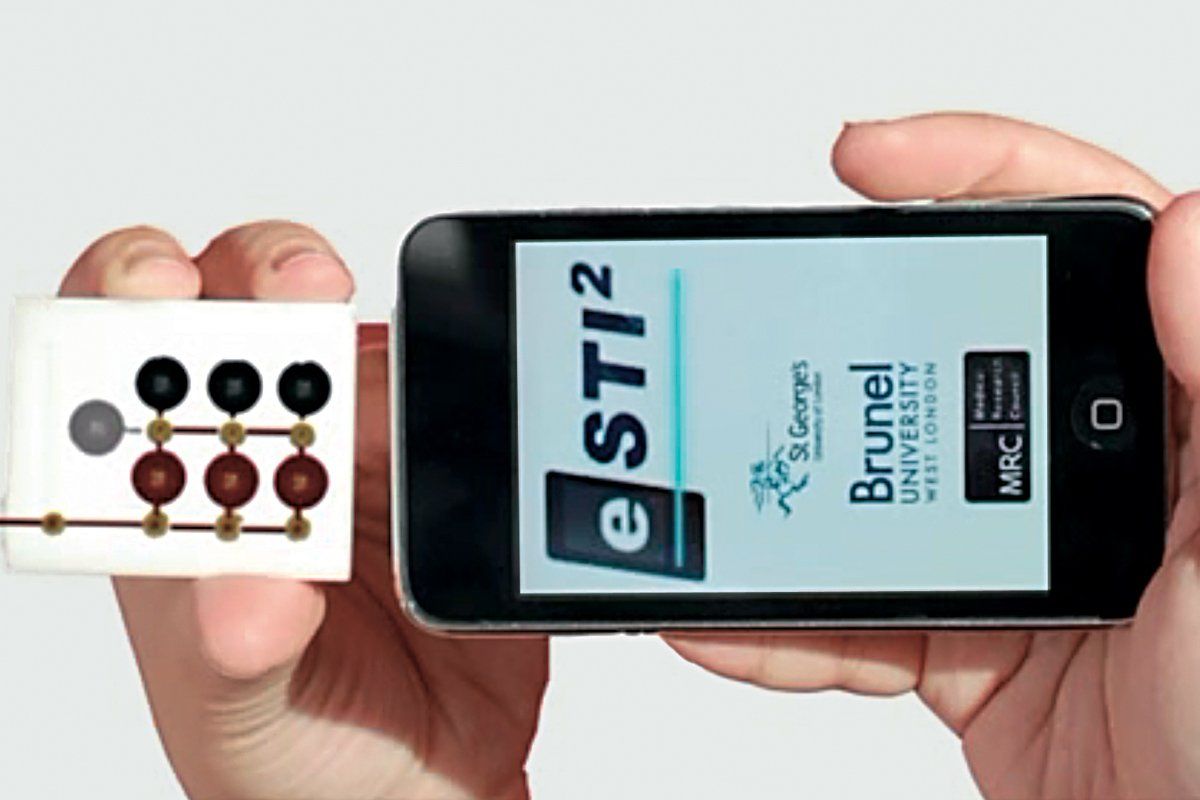
It sounded like a bad joke. One headline read: THINK YOU HAVE AN STD? PEE ON YOUR PHONE TO FIND OUT. But earlier this month researchers in the U.K. received a $6.4 million grant to develop a test for sexually transmitted diseases that would allow people to place a urine sample on a USB-like plug and get instant results by inserting it into their cell phone or computer. The test won't be commercially available for seven to 10 years, says the project's lead investigator, Dr. Tariq Sadiq. And while it sounds gross, germophobes can relax: "You're not peeing on the computer or mobile phone," Sadiq says. "It's a completely separate device."
We've had a long-running fascination with at-home medical tests. Ancient Egyptians relied on a pregnancy test that was roughly 70 percent accurate: if a woman urinated on grain seeds and they grew—thanks to high levels of estrogen and progesterone in her urine—she was probably pregnant. Today, people still place a high premium on diagnosing themselves from the comfort of their own bathrooms. But while do-it-yourself pregnancy tests now provide correct results nearly 99 percent of the time, many other at-home diagnostic kits may be less reliable.
Over the past year, the Food and Drug Administration has been cracking down on companies selling everything from DNA to STD tests directly to consumers. Walgreens dropped its plan to sell an over-the-counter genetic test in June, and Rite Aid is now under fire for putting a test for chlamydia and gonorrhea on its shelves without FDA clearance. The FDA typically endorses only at-home tests that give accurate results at least 95 percent of the time, provide simple instructions, and—in cases where you ship a blood or urine sample off to a lab—are processed by legitimate facilities.
Still, an FDA stamp of approval doesn't necessarily mean consumers should trust an at-home test. A range of tests—like those for pregnancy, ovulation, male fertility, and HIV—are generally very reliable. But some other FDA-sanctioned tests, such as those for drugs of abuse and female fertility, may produce more confusing results. Drug tests tend to produce too many false positives. The problem with female fertility tests, on the other hand, may be that they measure follicle--stimulating hormone in the urine rather than anti-Müllerian hormone in the blood—a more reliable predictor of fertility. Sometimes the solution is simple, says Dr. Anne Steiner, an ob-gyn at the University of North Carolina School of Medicine: "As far as fertility, the best at-home test right now that's been proven is your age."
Uncommon Knowledge
Newsweek is committed to challenging conventional wisdom and finding connections in the search for common ground.
Newsweek is committed to challenging conventional wisdom and finding connections in the search for common ground.





